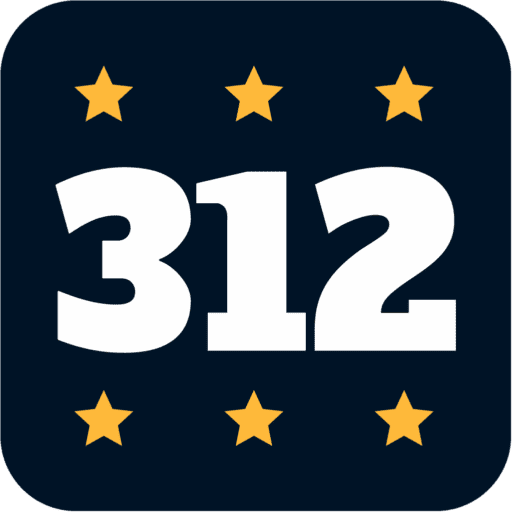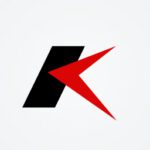"Our garbage trucks endure a lot of wear and tear—from accident damage to rust buildup. 312 Truck handles everything from structural repairs to repainting and de-branding before resale. Their expertise in durable, wear-resistant coatings keeps our fleet looking sharp against the elements."
The Complete Guide to Truck Body Modifications in Chicago

Team #312Truck
Discover everything you need to know about truck body modifications in Chicago. From lift kits and custom paint to regulatory compliance and top modification shops, this comprehensive guide covers costs, best practices, and Chicago-specific considerations for truck owners looking to customize their vehicles in 2025.
Chicago’s truck modification scene is thriving in 2025, with innovations in electrification, overlanding, and advanced customization taking center stage. Whether you’re looking to enhance your truck’s functionality for work, improve its off-road capabilities, or simply express your personal style, navigating the world of truck modifications can feel overwhelming.
Truck owners face complex decisions about modifications, costs, regulations, and finding quality service providers. This comprehensive guide will help you successfully navigate Chicago’s truck modification landscape, covering everything from popular modification types and costs to regulations and critical considerations specific to the Windy City.
Understanding Truck Body Modifications
What Qualifies as a Truck Body Modification
Truck body modifications encompass any changes made to your vehicle beyond factory specifications. This includes both aesthetic and functional alterations, ranging from simple accessories to comprehensive custom builds. Understanding the distinction between modifications and repairs is crucial, as is knowing the difference between factory-authorized and aftermarket modifications.
Key categories include:
- Aesthetic modifications: Body kits, custom paint, vinyl wrapping, and lighting upgrades
- Functional upgrades: Lift kits, armor plating, equipment mounting systems
- Performance enhancements: Engine modifications, exhaust systems, suspension upgrades
- Emerging trends: Electrification modifications, overlanding setups, and modular accessories
Why Chicago Truck Owners Modify Their Vehicles
Chicago truck owners have unique motivations for modifying their vehicles. Urban functionality needs drive many modifications, from secure storage solutions to improved visibility in city traffic. The city’s proximity to recreational areas creates demand for off-road capabilities, while commercial applications require specialized equipment mounting and cargo management systems.
Weather-related preparations are particularly important in Chicago’s climate, with modifications often focusing on winter performance, corrosion protection, and year-round reliability.
Most Popular Truck Modifications in Chicago
Lift Kits and Suspension Systems
Suspension modifications remain among the most popular choices for Chicago truck owners. Suspension lifts ranging from 2-10+ inches provide improved ground clearance and off-road capability, while body lifts offer a more economical 1-3 inch option primarily for tire clearance. Leveling kits eliminate the factory rake and improve aesthetics without dramatically altering the truck’s profile.
Chicago-specific considerations include winter traction impacts, parking garage clearance limitations, and daily usability in urban environments.
Custom Paint and Vehicle Wrapping
Professional paint and wrapping services have evolved significantly, offering truck owners extensive customization options. Paint choices range from single-stage applications to base/clear coat systems and specialty finishes. Vinyl wrapping provides flexibility with partial wraps, full vehicle coverage, and premium material options.
2025 trending colors include metallic emerald greens, burnt oranges, and satin finishes. Weather protection features like UV resistance and salt corrosion prevention are particularly important for Chicago’s harsh climate conditions.
Functional Equipment and Storage
Practical modifications focus on improving truck utility and organization. Popular options include:
- Toolboxes: Crossover, side-mount, and underbody configurations
- Bed storage: DECKED drawer systems and slide-out organizers
- Ladder racks: Roof-mounted and side-mounted systems for contractors
- Tonneau covers: Hard and soft options providing weather protection
- Bed liners: Spray-in versus drop-in applications for cargo protection
Performance and Utility Upgrades
Chicago truck owners frequently invest in lighting modifications, including LED conversions, light bars, and specialized work lighting. Towing packages with heavy-duty hitches and gooseneck systems support recreational and commercial needs. Performance modifications like cold air intakes, exhaust systems, and ECU tuning enhance capability while maintaining reliability.
Chicago-Specific Regulatory Compliance
City of Chicago Regulations
Operating a modified truck in Chicago requires understanding local restrictions. Parking regulations prohibit certain commercial vehicles on residential streets overnight. Dimensional limits restrict vehicle height, width, and length on city streets, while operational requirements include idling restrictions and special permit needs for certain modifications.
Fire safety permits are required for vehicles equipped with generators or propane systems, particularly relevant for overlanding and commercial applications.
Illinois State Requirements
State-level compliance involves DOT registration requirements for second division vehicles, weight restrictions (20,000 lbs single axle, 34,000 lbs tandem axle, 80,000 lbs gross weight), and dimensional limits (102″ width, 13’6″ height, 42′ length maximums).
Emissions testing is required in Cook County and surrounding areas, while safety inspections apply to commercial vehicle operations.
Federal Compliance Considerations
FMCSA regulations affect commercial operators, requiring USDOT numbers, CDL requirements, and hours of service compliance. EPA emissions standards continue evolving, with current requirements and potential changes under different administrations. NHTSA safety standards include automatic emergency braking requirements by 2029.
Cost Breakdown and Pricing Guide
Entry-Level Modifications ($500-$2,000)
- Leveling kits: $500-$1,500 installed
- Basic accessories: Running boards, mud flaps, basic lighting
- Tonneau covers: $400-$900 installed
- Simple toolboxes: $300-$1,200 installed
Mid-Range Modifications ($2,000-$10,000)
- Suspension lift kits: $2,000-$6,000 installed
- Custom paint/wrapping: $3,000-$8,000
- Performance upgrades: $1,500-$5,000
- Equipment mounting systems: $1,000-$4,000
Premium Modifications ($10,000+)
- Comprehensive overlanding builds: $10,000-$25,000+
- Armor plating: $14,000-$90,000 depending on protection level
- Complete custom builds: $15,000-$50,000+
- Commercial equipment installations: $5,000-$25,000
Labor Costs in Chicago Market
Hourly rates range from $80-$250 depending on shop specialization. Installation timeframes vary from 1-2 days for simple modifications to 3-8 weeks for complex builds. Seasonal pricing often includes winter discounts and summer preparation specials.
Choosing the Right Modification Shop
What to Look for in a Quality Shop
Selecting the right modification shop is crucial for successful results. Certification and experience should be your first consideration—look for manufacturer certifications, I-CAR credentials, and shops with decades of experience in truck modifications. Customer reviews provide valuable insights, so check Google Reviews, Yelp ratings, and Better Business Bureau standings.
Warranty offerings typically range from 90 days to one year for quality work. Specialization match is important—choose shops that specialize in your specific type of modification rather than general repair facilities.
Key Questions to Ask Potential Shops
- What manufacturer certifications do you hold?
- Can you provide references from recent similar projects?
- What warranty do you offer on parts and labor?
- How do you handle regulatory compliance requirements?
- What is your estimated timeline for completion?
- Do you have experience with insurance documentation requirements?
312 Truck Body Repair: Your Chicago Modification Partner
At 312 Truck Body Repair, we understand the unique needs of Chicago truck owners. Our experienced team specializes in both aesthetic and functional modifications, from custom paint jobs and body work to comprehensive truck customization projects. We’re familiar with local regulations and can guide you through the compliance process while delivering quality results that meet your specific requirements.
Insurance and Legal Considerations
How Modifications Affect Insurance Coverage
Modifications typically increase insurance premiums due to higher replacement costs, theft risk, and accident risk. Coverage exclusions often apply to racing, off-road use, and improperly installed equipment. Disclosure requirements are critical—failure to disclose modifications can void coverage entirely.
Illinois Insurance Requirements
- Minimum liability: $25,000/$50,000 bodily injury, $20,000 property damage
- Commercial requirements: $750,000 freight hauling, $300,000 household goods
- Uninsured motorist coverage: Required minimums
Recommended Insurance Practices
- Full disclosure: Report all modifications to your insurance provider
- Documentation: Maintain professional installation records
- Specialized coverage: Consider agreed-value policies for extensive modifications
- Shop comparison: Different insurers have varying modification tolerance
Seasonal Considerations for Chicago Climate
Winter Weather Challenges
Chicago’s harsh winters create unique challenges for modified trucks. Lifted vehicles with oversized tires often struggle with traction in snow and ice. Salt corrosion affects modifications more severely than stock components, creating additional maintenance requirements. Clearance problems arise with parking garages, drive-throughs, and snow accumulation.
Best Timing for Modifications
Spring/early summer provides ideal installation weather for most modifications. Fall works well for winter-preparation modifications. Winter limits work to indoor projects like electrical systems and interior modifications. Avoid late fall when shops are busy with winter preparation work.
Seasonal Preparation Modifications
Winter equipment like block heaters, auxiliary heating, and improved lighting helps navigate Chicago’s climate. Summer preparations include A/C upgrades and cooling system modifications. Year-round considerations focus on equipment capable of handling temperature swings from -20°F to 100°F+.
Common Mistakes to Avoid
Planning and Design Errors
- Insufficient research: Not understanding vehicle limitations before modification
- Piecemeal approach: Lack of comprehensive planning leading to compatibility issues
- Ignoring end-use: Modifying for appearance without practical consideration
- Budget underestimation: Hidden costs, additional modifications, and maintenance
Installation and Quality Mistakes
- DIY over-ambition: Attempting complex modifications without proper tools or expertise
- Cheap components: Poor quality parts failing prematurely
- Improper weight distribution: Modifications that upset vehicle balance
- Electrical overload: Adding accessories without adequate electrical capacity
Regulatory Compliance Failures
- Dimensional violations: Exceeding legal height/width limits
- Lighting violations: Illegal headlight colors, brightness, or positioning
- Emissions issues: Modifications affecting emissions systems
- Safety equipment: Removing required safety features
Industry Trends and Future Outlook
Emerging Trends for 2025 and Beyond
Electrification modifications are gaining traction, with EV truck customization and solar charging systems becoming more common. Overlanding focus emphasizes self-sufficiency equipment and modular accessories. Advanced lighting includes adaptive LED systems with smartphone control capabilities. Modular design features quick-release mounting and interchangeable components.
Technology Integration
IoT connectivity enables smart systems and remote monitoring capabilities. Autonomous features integration with self-driving capabilities is emerging. Sustainability focus drives adoption of eco-friendly materials and recyclable components. Customization software with 3D modeling and virtual fitting improves planning accuracy.
Market Evolution
Compact and midsize truck modifications are growing in popularity. Urban solutions emphasize city-friendly modifications. Regulatory changes continue evolving federal emissions and safety standards. Consumer preferences are shifting toward functional over purely aesthetic modifications.
Key Takeaways for Chicago Truck Owners
Research thoroughly: Understand costs, regulations, and requirements before beginning any modification project. Choose quality: Professional installation and premium components provide better long-term value. Plan comprehensively: Consider all aspects from insurance implications to resale value. Document everything: Maintain detailed records for warranty protection and resale purposes.
Action Steps for Getting Started
- Define your needs: Determine primary use case and establish a realistic budget
- Research regulations: Ensure compliance with local and federal requirements
- Get quotes: Compare multiple approaches and installation options
- Check insurance: Verify coverage for planned modifications
- Plan timing: Consider seasonal factors and shop availability
Final Recommendations
Start conservative with basic modifications and build experience over time. Join local truck modification communities to learn from experienced enthusiasts. Stay informed about regulatory changes and industry trends. Budget appropriately for ongoing maintenance and care requirements.
Chicago’s truck modification scene offers exceptional opportunities for customization, but success requires careful planning, quality execution, and ongoing compliance with local regulations. Whether you’re pursuing functional improvements for work applications or recreational enhancements for weekend adventures, this guide provides the foundation for making informed decisions about your truck modification journey.
Ready to start your truck modification project? Contact 312 Truck Body Repair to discuss your vision and learn how we can help bring your customization goals to life while ensuring compliance with all local regulations.






